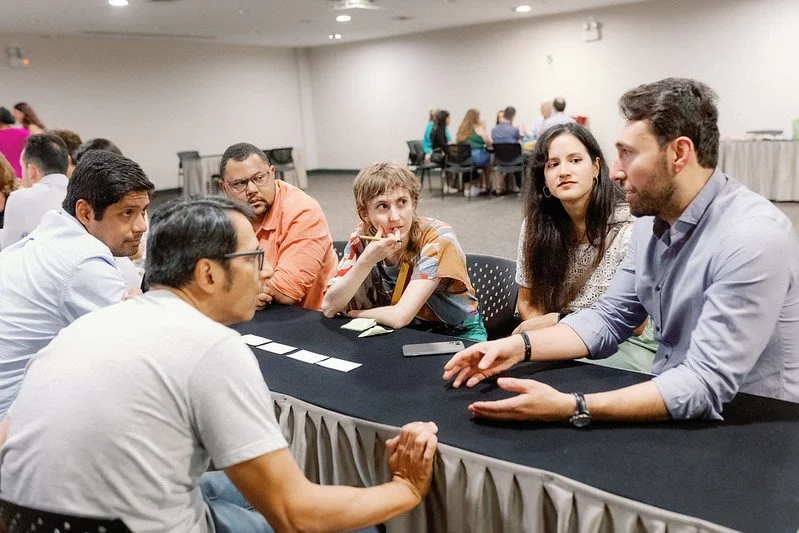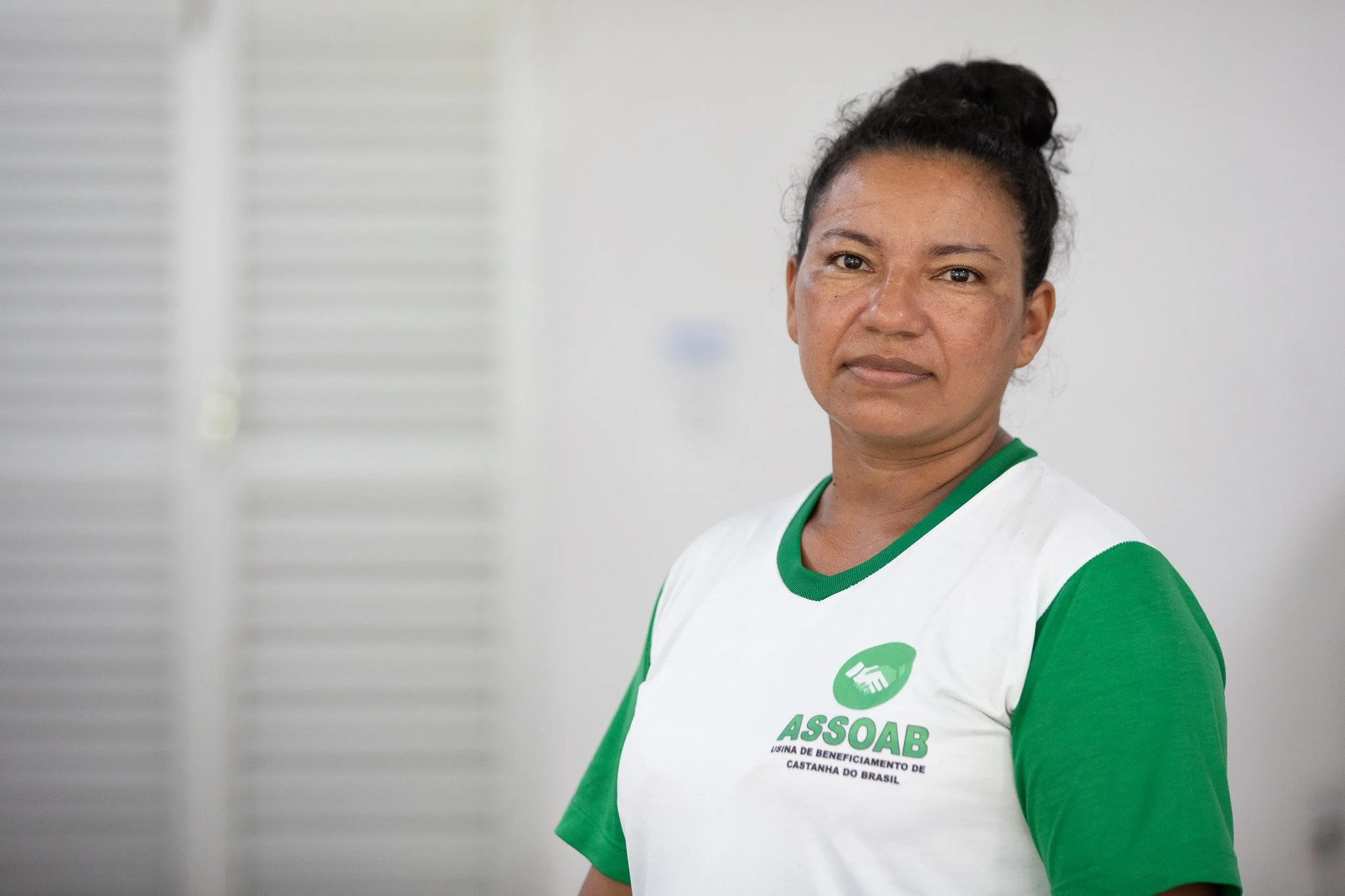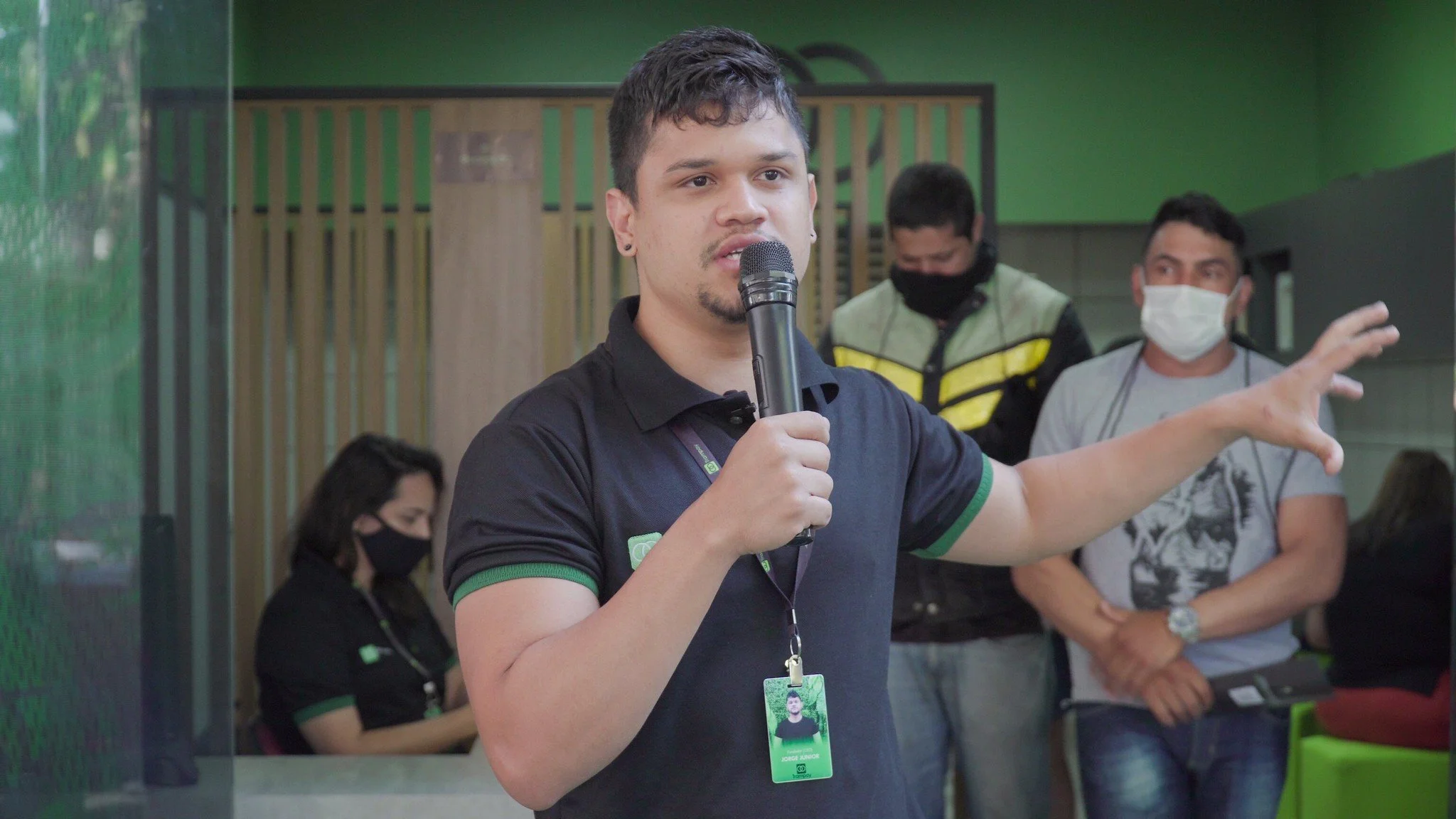Over the past decade, impact investing has grown from an emerging idea into an increasingly more prevalent financial strategy, praised for its ability to support social and environmental progress while still making financial return. But while the concept has gained traction, the conversation often focuses more on potential than on proof—and in that gap, doubts still linger.
In this article, NESsT Chief Impact and Operations Officer Renata Truzzi explores how NESsT bridges this gap by demonstrating real, measurable impact through rigorously-measured investments, running accelerator programs that prioritize locally-led businesses, and prioritizing DEI-driven decision making – creating thousands of dignified jobs and improving millions of lives worldwide.
Over the past 28 years, NESsT has invested in and accelerated close to 500 community-led enterprises that are creating dignified jobs and protecting the planet, backing businesses that prioritize people and the environment, not just profit.
To date, NESsT has supported over 37,000 entrepreneurs to create over 160,000 jobs, improving the lives of more than 3.5 million people across 50 countries. And the impact is lasting: 90% of employees, suppliers, and customers from these enterprises remain on contract, showing strong retention and economic stability.
Let’s dig into how impact investing actually works – and why it might just be one of the most effective tools we have for creating long-term, meaningful change.
At its core, impact investing is about putting capital to work in businesses that generate measurable social or environmental benefits alongside financial returns.
It occupies the vital space between philanthropy – which creates social good without demanding financial returns – and traditional investing, which pursues profit while often overlooking human and environmental costs. Impact investing allows for a thoughtful, data-backed approach that challenges the idea that doing good and making returns must be mutually exclusive.
Across the impact investing sector, organizations are demonstrating that investments aimed at solving global problems can – and do – deliver tangible outcomes. Impact investing takes many forms, but successful approaches often share a few key elements:
the rigorous measurement of real-world outcomes;
tailored financial and technical support for locally-led enterprises;
decision-making that puts diversity, equity, and inclusion first; and
a diverse team that understands that real change begins with walking the talk.
Rigorous measurement of real-world outcomes
Without common industry standards, not all “impact investing” is created equal. Across the ecosystem, a lack of consistency in measuring outcomes leaves space for claims of impact that don’t always match reality.
By putting impact measurement and management at the center of their work, impact investors can track not just investments disbursed but the real-world outcomes they generate, while ensuring transparency and reliability in their investment approaches.
Photo: NESsT team meets with portfolio enterprises in Lima, Peru
NESsT assesses its impact through the Performance Management Tool (PMT), developed in 1999 to assist social enterprises in managing and measuring their businesses, social, and environmental performance.
In 2018, we deepened our impact measurement by introducing our biannual Dignified Employment Survey, a collection of qualitative metrics that reveal how people’s lives have been changed by social entrepreneurship. To gather this qualitative data, NESsT sends its teams to meet and talk with the people its portfolio enterprises work with or employ in person or online every other year, providing rich insights into the quality of their jobs and exploring questions such as: Are the jobs created by NESsT portfolio enterprises really improving the quality of people’s lives? and Do employees feel that their job is secure?
In 2024 alone, we invested over $6.1 million into 85 enterprises addressing urgent issues like economic instability, climate change, and displacement. Tracking the real-world outcomes of these investments, we documented 38,000 new jobs created and 1.2 million lives positively impacted.
Going deeper, our 2023-2024 Dignified Employment Survey revealed how these investments impact people in their communities. Respondents experienced an average income increase of 206% compared to local minimum wages, with 58% reporting receiving higher annual income than the previous year. Retention among employees, suppliers, and customers remained high at 90%, and 91% of respondents reported feeling safe at work.
“[A dignified job] is a job [that] provides stability, respect for your skills and background, fair compensation, and a supportive work environment. It should offer opportunities for growth and allow for a balance between work and family responsibilities. “
Photo: ASSOAB © Bruno Kelly | WWF Colombia.
By speaking directly to the employees and suppliers of its portfolio companies, investors can contextualize their impact numbers and better understand the impact of their investments across different contexts, such as in different age groups, or types of households.
One respondent to our survey described what dignified employment as "[...] when I can work with enthusiasm and joy, and it allows me to grow personally and professionally.” Another replied, “[A dignified job] is a job [that] provides stability, respect for your skills and background, fair compensation, and a supportive work environment. It should offer opportunities for growth and allow for a balance between work and family responsibilities.
Driving longer-lasting impact through local leadership
When capital is directed toward businesses led by and rooted in the communities they serve, the impact runs deeper than traditional investment models. Locally-grown enterprises don't just generate jobs, they create pathways out of poverty by actively listening and responding to the needs of their communities.
At the heart of NESsT’s model are accelerator programs that provide intensive business development support to expand the impact of these social enterprises and prioritize deep local partnerships that center the voices of grassroots communities.
Through this close-up approach, NESsT portfolio managers – who work on the ground close to or in the communities we serve – mentor and support portfolio entrepreneurs, who in 2024 sustainably increased their business’ sales by an average of 37%. For their employees and suppliers, this translated into almost 30% higher income for them and their families.
Photo: Jorge Júnior, CEO and Co-Founder of Trampay
Jorge Júnior is one of the entrepreneurs in our Racial Equity portfolio. He founded the business Trampay after growing up watching his father make a living as a delivery driver, aiming to create a fairer, safer gig economy for workers in Brazil.
Trampay is a fintech that provides financial solutions designed especially for app-based workers and freelancers—many of whom are Black and excluded from traditional banking services. Trampay joined the portfolio with the goal of improving the livelihoods of 300,000 gig workers in Brazil. So far, NESsT’s investment in Trampay has allowed the company to implement a new support station in an area of high delivery demand – a much-needed refuge for a workforce without a physical workplace.
Diversity, equity, and inclusion are non-negotiable
Diversity, equity, and inclusion are essential for not only dismantling industry biases and creating fair workplaces, but also for driving measurable social, environmental, and financial outcomes.
When businesses reflect the diversity of the communities they serve, they perform better while reducing inequality. In 2024, companies in our portfolio whose leadership teams were made up of more than 50% women or people from underrepresented backgrounds achieved sales growth over 30% higher than our overall portfolio average, while supplier and employee income grew more than 200% above the portfolio average.
Take Okolo, a women-led enterprise in Colombia producing eco-friendly reusable diapers. Conscious that the initial cost often prevents more people from opting to use reusable diapers, Okolo keeps product costs low by assembling its diapers locally, while supporting women textile workers over the age of 50. Of the 12,000 customers who use Okolo’s eco-friendly products, 80% are from Colombia's lowest income levels, benefitting from up to 80% savings compared to using disposable diaper costs.
Photos: Okolo
Okolo also runs a Brand Ambassador program providing flexible income opportunities to its community of women – many of whom are on maternity leave or caring for their children at home. To date, the program has supported 300 mothers from low-income families to increase their earnings by up to 50%.
On the other hand, it is important to highlight that for NESsT, gender equity does not necessarily mean having only women-led businesses in the portfolio. We believe that all companies can evolve towards greater equity, whether they are hybrid, women-led, or men-led.
Another interesting case in the NESsT portfolio is the company FCC. It is a coffee production company in Colombia with hybrid management, meaning an equal number of women and men in high-level management positions. In a region where access to education and technical knowledge is limited, FCC provides comprehensive training to coffee producers and their families. As members of FCC, farmers receive ongoing support to complete organic and Fair-Trade certifications and implement long-term sustainable farming methods that strengthen their traditional practices and the quality of the coffee they grow.
FCC has been producing coffee since the 90s, and part of its journey has been recognizing the need to commercialize its production for the benefit of the community. The first action they took in this regard was to involve families in production—both men and women. The company's generation of knowledge began, therefore, long before they received technical support or knew the technical names for the actions they were implementing.
Working with FCC, we learned that women bring a broader vision of the entire social and environmental impact generated for the local community. Women bring ancestral knowledge and innovative processes. They were doing regeneration before they knew those processes were called regeneration.
NESsT's role in these cases is to learn from the portfolio and support the processes in pursuit of greater efficiency. In this case, for example, we learned that regeneration is a collective task.
Understanding that real change begins with walking the talk
Perhaps one of the most important lessons I’ve learned throughout my decade at NESsT has been this: impact investors must start by looking inward. By hiring teams that represent the communities we serve, including diverse voices in investment committees and decision-making, we can truly bring change from the ground up.
In practice, this looks like continuous education and reflection across our entire investment value chain – recognizing that impact must be a deeply held conviction, not just a reporting metric.
Photo: NESsT Racial Equity One-Year Anniversary Dinner, San Paolo, Brazil
When we launched the NESsT Racial Equity Initiative in 2020, it became clear that our team didn’t fully reflect the community we aimed to support — a gap we knew we had to address. We started by rethinking our hiring practices, moving beyond standard DEI approaches to intentionally recruit talent from the Black community.
At the same time, we ensured the NESsT Brazil Investment Committee included Black professionals, to provide oversight on our investments. In 2024, NESsT also obtained Racial Equity Certification in Brazil by Pacto Pele Promoção da Equidade Racial, reinforcing our commitment to building racially-equitable workplaces, both internally and externally.
While we recognize there is still much work ahead, these steps reflect a deliberate, values-driven approach: we are committed not just to talking about change, but to embedding it in the way we operate.
We envision a future where impact and traditional investing are one and the same: where measuring real-world outcomes is standard practice, locally-led enterprises thrive, and DEI and environmental responsibility are recognized as non-negotiables in investment models. Achieving this future means walking the talk: holding ourselves accountable, aligning capital with values, and proving that finance can drive solutions for people and planet alike.
Renata Truzzi, NESsT CI&OO
Reach out to Renata at the link below to learn more about NESsT’s holistic investment approach or discuss how we measure our impact:
Cover photo: NESsT team visits FCC






















